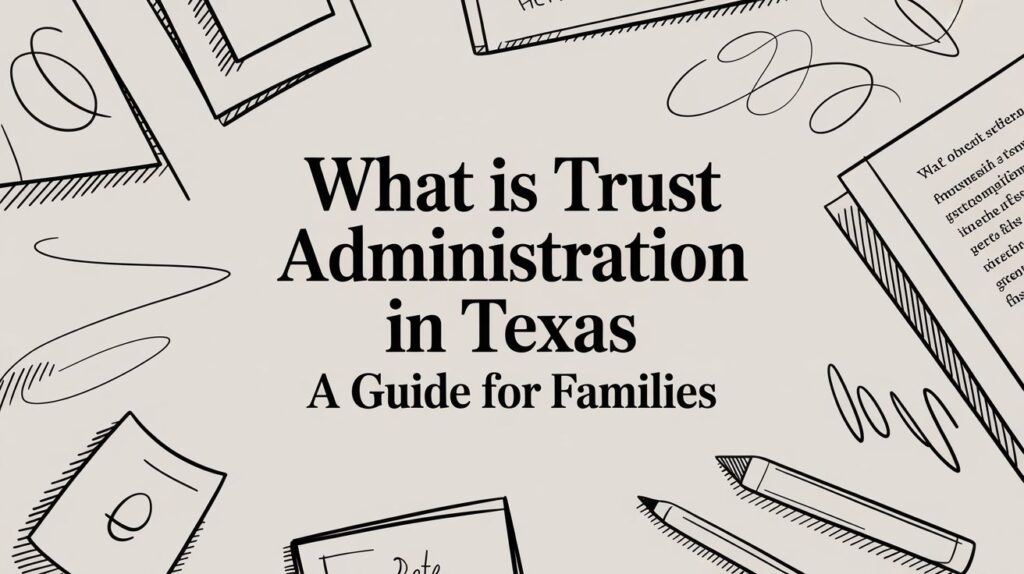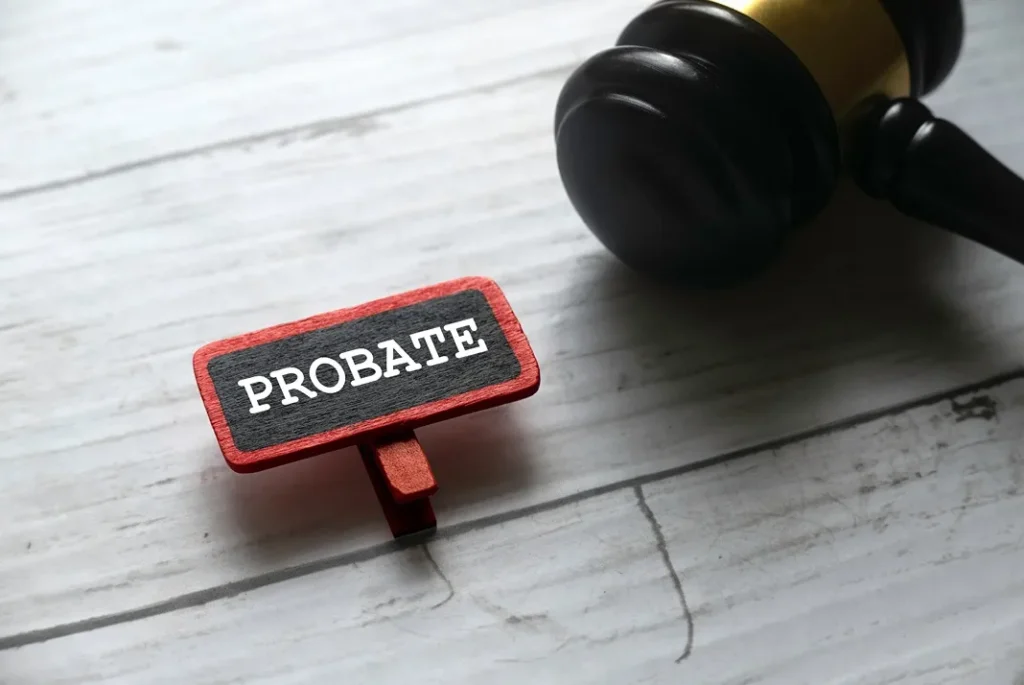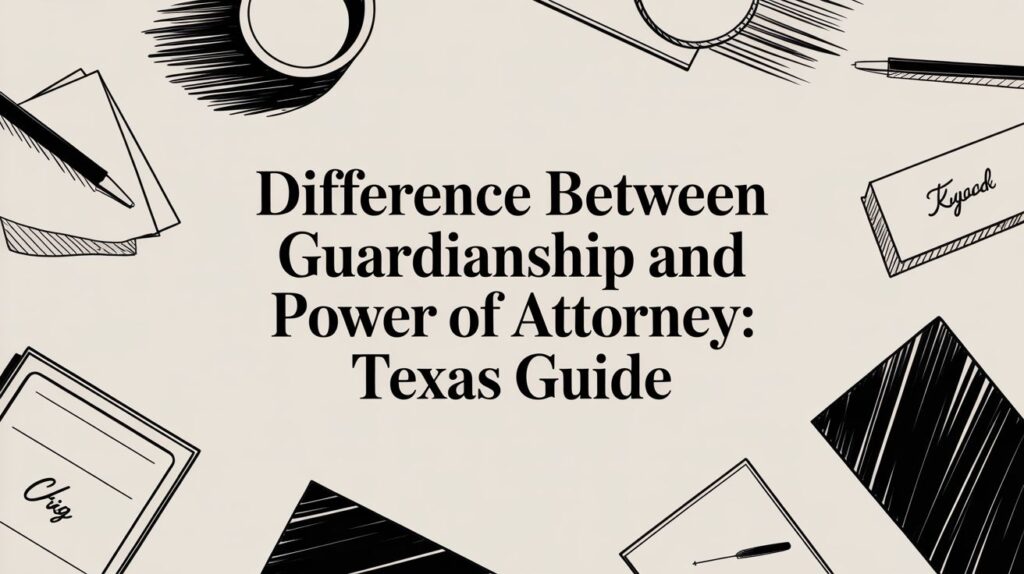If you’ve recently lost a loved one and are now asking, “how does probate work in Texas about a deed?”—you’re stepping into a complicated yet very important part of the estate process. Real estate often makes up the most valuable part of someone’s estate, and the way it passes from one person to another after death is anything but automatic. In fact, when a deed is involved, probate can quickly turn into a legal minefield if not handled correctly.
This article takes a deep dive into how deeds and real estate are handled through probate in Texas, what legal pitfalls to avoid, and how heirs can legally claim their right to a property. We’ll look at real-world cases, practical tips, and state-specific legal rules you won’t find in generic probate blogs.
Let’s break down what happens when real property is involved—and how Texas probate law governs who gets what, when, and how.

Why Understanding How Probate Works in Texas About a Deed Is So Important
So, how does probate work in Texas about a deed? To start with, it’s important to know that property deeds don’t automatically transfer ownership just because someone dies. Even if the will says “I leave my house to my son,” that statement has no legal power until a court validates the will and grants authority to someone—usually an executor—to transfer title.
This is where many families hit a wall. They assume that being named in the will is enough, only to discover that title companies, banks, and the county clerk won’t recognize ownership changes without probate. Understanding how Texas probate law treats deeds ensures that heirs know what steps must be taken.
Real-Life Example: The Locked-Up House That Required Probate
Consider Maria, whose father passed away in El Paso leaving behind a will that gave her the family home. Maria found the deed, saw her father’s name on it, and assumed that was enough. When she tried to sell the house two years later, the title company told her she wasn’t the legal owner—and couldn’t complete the sale.
Why? Because her father’s name was still on the deed, and probate had never been filed in Texas. Maria had to open a late probate case just to get legal title transferred—something that delayed her sale by over six months and cost her thousands in legal fees.
Types of Property Titles in Texas and Why They Matter
To understand how probate works in Texas about a deed, you need to understand how real estate is titled. In Texas, property can be held in several ways, and how it’s titled directly impacts whether probate is required.
1. Sole Ownership
If the decedent was the sole owner of the property, probate is almost always required. The court must establish who inherits the property—whether through a will or Texas intestate succession laws.
2. Joint Tenancy with Right of Survivorship
In this case, the surviving co-owner automatically inherits the property. No probate is needed, but the survivor will still need to file an affidavit of survivorship and death certificate with the county.
3. Community Property with Right of Survivorship (Married Couples)
If a married couple owned the property as community property with right of survivorship, it passes directly to the surviving spouse. Again, no probate is needed, but documentation must still be updated.
4. Transfer-on-Death Deed (TODD)
This special deed lets someone name a beneficiary to receive property after their death without going through probate. The TODD must be properly recorded before the person dies. Texas legalized this tool in 2015, and it’s become a go-to option for simplifying real estate transfers.
5. Life Estate Deeds
Life estate deeds give someone the right to live in the property for life, with ownership transferring to a “remainderman” afterward. These deeds are also designed to avoid probate, but they must be precisely worded and filed correctly.

So, When Is Probate Required for a Deed in Texas?
Probate is required for a deed in Texas any time the deceased owned property in their name alone and did not use a survivorship deed or TODD. Even if there’s a valid will, you still have to go through probate to formally transfer the title.
Here’s the key takeaway: Title doesn’t pass automatically based on the will—it only passes once probate is completed.
That means heirs cannot sell, refinance, or even pay taxes under their name until probate gives them legal authority to act on behalf of the estate.
How Does Probate Work in Texas About a Deed? Step-by-Step Breakdown
Let’s walk through what the probate process looks like specifically when it involves real estate.
Step 1: File an Application for Probate
The executor named in the will (or a proposed administrator if there’s no will) files an application in the probate court of the county where the decedent lived. The court sets a hearing to validate the will and appoint the legal representative.
Step 2: Prove the Will and Appoint Executor or Administrator
At the hearing, the court admits the will into probate and formally appoints the executor. This person is given Letters Testamentary (or Letters of Administration)—official documents that give them power to act on behalf of the estate.
Step 3: File Inventory and Notice to Creditors
Texas requires the executor to file an inventory of all assets—including real estate—and notify any known creditors. This is a crucial step because any debts secured by the property (like a mortgage) must be addressed before transferring the deed.
Step 4: Transfer the Property
Once debts are handled and the court gives the green light, the executor can draft a deed of distribution transferring the property to the rightful heir or beneficiary. This deed is then recorded with the county clerk’s office—only then is ownership officially transferred.
Special Situations: What If There’s No Will?
When someone dies without a will in Texas (known as dying intestate), things get trickier. The property passes according to Texas intestacy laws, which vary depending on whether the deceased was married, had children, and whether the property was community or separate.
In these cases, probate still needs to be filed, and the court will determine who inherits the property. The title is not legally changed until probate wraps up and a deed is filed by the administrator.
Affidavit of Heirship: An Alternative?
If the estate has no debts and there’s no dispute about the heirs, you might be able to use an Affidavit of Heirship to transfer title without full probate. But beware—title companies often reject these affidavits if the death occurred recently or if the heirs are not clearly established.

Real-Life Case: The Unpaid Mortgage That Almost Cost an Inheritance
Kevin inherited a house from his aunt who left a will naming him as the sole beneficiary. However, she still had an unpaid mortgage. Kevin assumed that being in the will was enough to sell the house and pay off the loan. But the lender refused to speak with him until he presented Letters Testamentary from the probate court.
Kevin ended up scrambling to open probate before the mortgage went into foreclosure. Once the court granted him legal authority, he was able to sell the house, pay off the debt, and keep the remainder.
The lesson? Probate isn’t optional when real estate is involved—it’s the legal bridge to everything that happens after.
How Long Does Probate Take When a Deed Is Involved?
In Texas, probate with real estate typically takes 4 to 6 months, assuming no disputes or unusual complications. However, delays can occur if:
- There are multiple heirs or beneficiaries
- The will is contested
- Property is located in multiple counties
- Debts or taxes need to be resolved before the title is clear
The more proactive the executor is, the faster things can move—but only with court approval at key steps.
Can You Sell Property Before Probate Is Complete?
This is a common question—and the answer is usually no. Until probate is finalized and the title is legally transferred, heirs have no authority to sell the property. That’s why title companies require proof of probate before closing a real estate transaction.
However, an executor can list the property for sale during probate and even negotiate a contract—but the sale cannot close until probate authority is granted and ownership is transferred legally.
Required Legal Documents to Transfer a Deed After Texas Probate
When probate is finished and the court approves the transfer, these documents are usually recorded with the county:
- Certified copy of the will (if applicable)
- Letters Testamentary or Administration
- Court order admitting the will to probate
- Executor’s deed or deed of distribution
- Death certificate
- Affidavit of Heirship (in some cases)
Recording these documents legally updates the title to reflect new ownership.
How to Avoid Probate for Real Estate in Texas
You can avoid probate for real estate in Texas by using the following tools:
- Transfer-on-Death Deed (TODD)
- Joint ownership with survivorship rights
- Revocable living trusts

Each method can bypass the probate court—but only if executed and recorded properly before death. Knowing how probate works in Texas about a deed will help you understand when these tools are appropriate and when probate remains necessary.
Why You Need to Understand Texas Probate for Property Deeds
Understanding how probate works in Texas about a deed is more than a legal formality—it’s a necessary step to preserve value, avoid conflict, and ensure that property passes according to the decedent’s wishes.
Whether you’re an heir, executor, or just trying to understand what happens next, knowing the probate process for real estate will help you make informed decisions. Real estate doesn’t move itself; probate is the legal engine that makes title transfer possible.
If you’re ever unsure, consult a Texas probate attorney. When real estate is on the line, small mistakes can become big legal and financial problems. Probate law is your road map—know how to read it, and you’ll get to the finish line.








